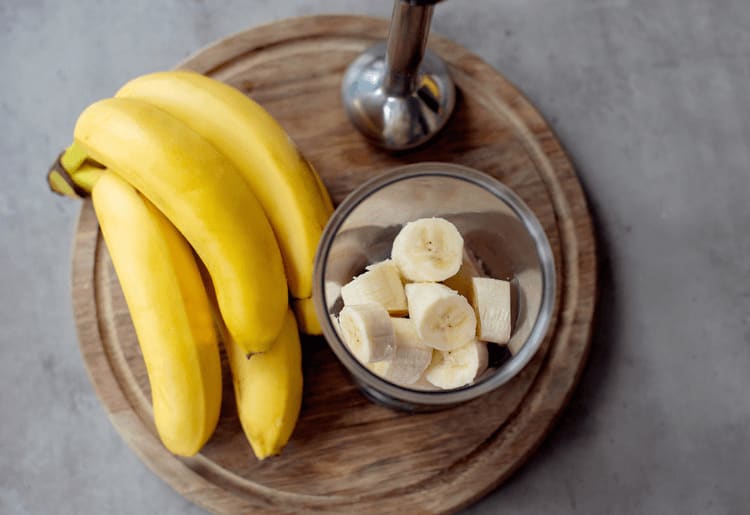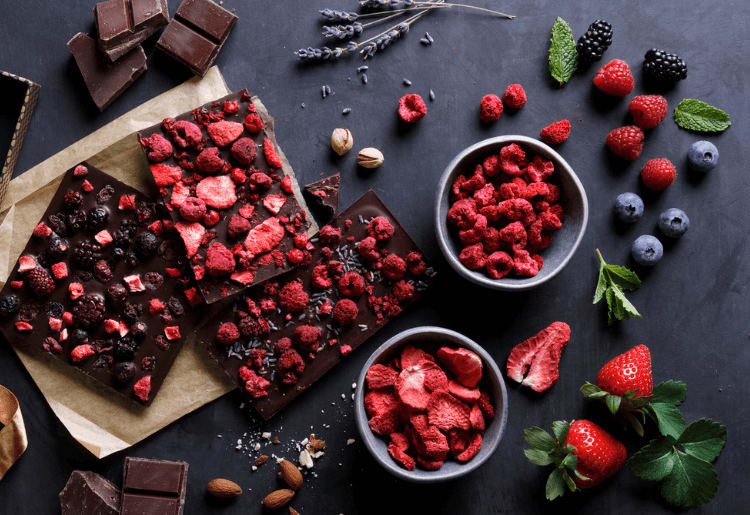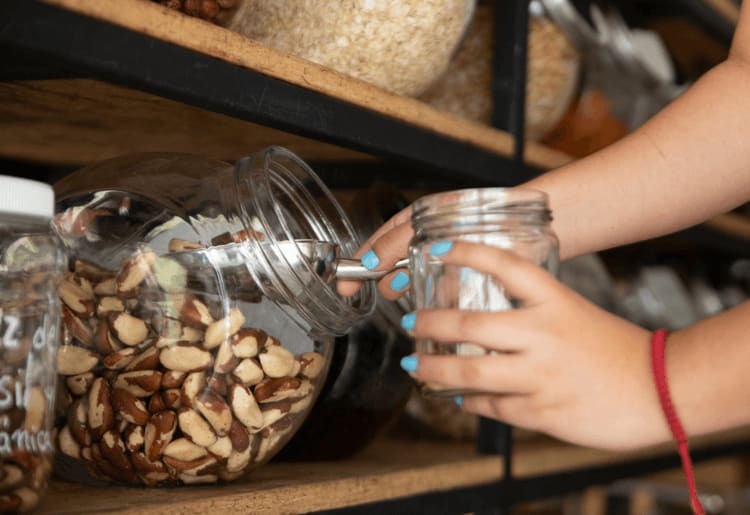There are many ways to handle seasonal depression, and when it comes to winter blues, enriching your diet with certain foods may help. Certain foods contain nutrients and compounds that help make your brain happier.
One way to incorporate more of these mood-boosting foods this winter is to try a meal delivery kit. Not only does this help take the stress and guesswork out of weeknight dinners, but it can also add a variety of new foods to your winter routine.
1. Salmon
Fatty fish, like salmon, are full of unsaturated omega-3 fatty acids, which have been linked to lower rates of depression. The major omega-3s include docosahexaenoic acid (DHA) and eicosapentaenoic acid (EPA).
No standard amount of omega-3s has yet been established for mood and other health benefits. However, many experts think getting somewhere around 250-500 mg per day of omega-3s (a combination of EPA and DHA) is a good start. Including salmon or other fatty fish at least once weekly is a great way to incorporate more omega-3s into your diet.
2. Tempeh

Tempeh is a cake-like product made from fermented soybeans. Fermented foods, which contain live good bacteria called probiotics, help promote the growth of more good bacteria in your gut. So much of our overall health stems from our gut health, and having a healthy digestive system may also be linked to a lower risk of depression.
Additionally, fermented foods may help increase levels of serotonin in your body. Serotonin is a neurotransmitter that’s strongly linked to your mood, and the majority of it is produced by your gut bacteria.
3. Blueberries
All berries are wonderful for health, but blueberries are among the most antioxidant- and polyphenol-rich varieties on the planet.
Antioxidants, found primarily in colorful fruits and vegetables, are important for protecting our cells from damage that can promote disease. They also help reduce inflammation which may promote depression.
Some of the most concentrated antioxidants in blueberries are called anthocyanins, which give them their beautiful purple color and may help fight depression.
4. Bananas

Bananas often claim fame for their potassium content, among other health benefits.
Beyond going well with so many things, especially in smoothies, one of the main reasons they’re so good for you is the vitamin B6 packed inside them. Vitamin B6, or pyridoxine, is needed for cognitive function, especially for powering neurotransmitters related to good moods, like serotonin and dopamine.
To further support the link between gut health and mood, bananas are a great source of prebiotics, which act as food for probiotics and promote a healthy bacteria balance.
5. Walnuts
Like all nuts and seeds, walnuts are packed with omega-3s, fiber, and protein, making them a great food. Regularly eating nuts has also been found to reduce the risk of depression in some people.
Walnuts are also rich in the amino acid tryptophan, often associated with the sleepy feeling you might get after eating a Thanksgiving turkey. Tryptophan is a precursor to serotonin, a neurotransmitter involved in mood regulation.
6. Dark Chocolate

Here’s one health benefit of eating chocolate you don’t have to stretch the truth for. Looking past the initial mood-boosting satisfaction of its sugar and creaminess, dark chocolate also contains flavonoids. Flavonoids are plant compounds that promote blood flow to the brain and help fight inflammation, which may help improve mood.
7. Lentils
Lentils are in the legume family, along with beans and peas. They’re high in protein, fiber, and B vitamins that may be especially good for your brain. Getting a wide range of B vitamins in your diet is important as they play a key role in nerve signaling and brain communication. Deficiency in B vitamins like folate and B12 has been associated with a higher risk for depression.
Plus, B vitamins help increase neurotransmitters involved in mood regulation, such as serotonin, dopamine, norepinephrine, and gamma-aminobutyric acid (GABA). Lentils can be purchased canned or dried, like beans.
8. Coffee
If you look forward to your morning cup of joe, you’re already familiar with some of the mood-boosting effects coffee has to offer.
And if you drink it to stay alert, that’s because the caffeine in coffee helps prevent the attachment of adenosine to brain receptors, which would otherwise make you feel tired. Staving off fatigue with a delicious warm beverage is a surefire way to help keep spirits high.
Coffee also helps enhance the release of neurotransmitters like norepinephrine and dopamine, which can help improve mood.
9. Brazil Nuts

As with other nuts, Brazil nuts are full of fiber, protein, and healthy omega-3 fatty acids that support mood and overall health. This nut stands out because Brazil nuts are one of the most selenium-rich foods on the planet, and eating just one nut per day can strongly support brain health.
They’re also a good source of the minerals selenium and zinc. Getting enough of these micronutrients may be especially important for boosting mood and preventing depression.
10. Avocado
Avocados are a rich source of vitamin B6, magnesium, and omega-3 fatty acids, all of which can help support brain health and potentially improve your mood.
Getting enough magnesium has long been associated with a better mood. Magnesium was the first medically acknowledged substance to help treat depression back in the 1920s. Eating foods like avocado is an easy way to get more magnesium quickly.
Bottom Line
Everybody goes through periods of feeling more down than usual, especially in the winter, but that doesn’t mean there’s nothing you can do about it. Your diet is one of the best places to look when experiencing the winter blues. Replacing some ultra-processed and less healthy foods with healthier whole foods is a great start.
Enjoying more foods like nuts, fatty fish, avocado, berries, and even a morning cup of coffee can help send happy signals to your brain and improve your overall mood. And if you need new ideas, consider trying a meal delivery kit that uses some of these ingredients to help get you through the remaining cold months.
